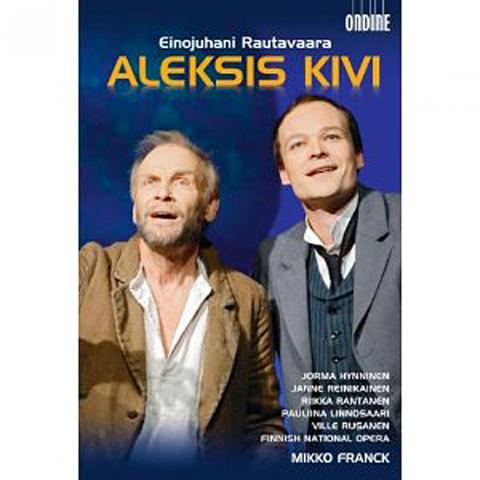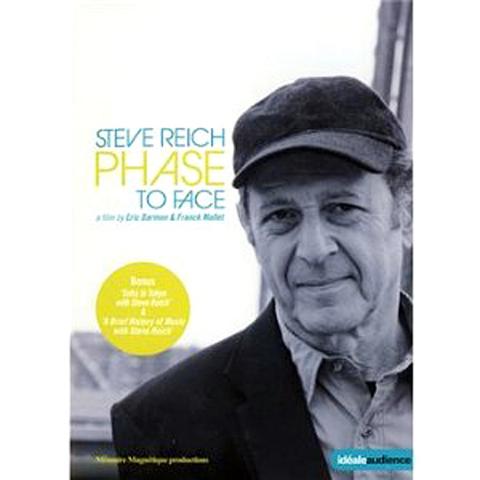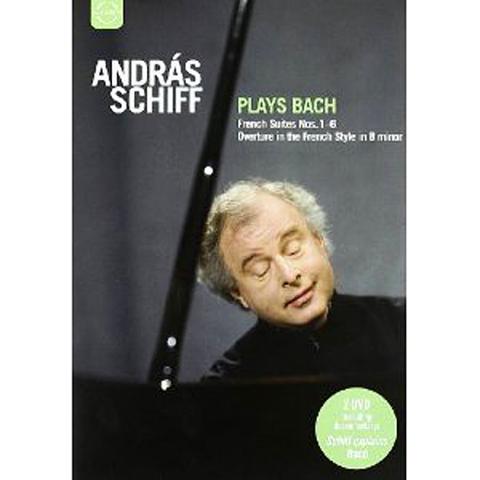The annual awards of Gramophone magazine have been called classical music’s Oscars. There are many categories, plus a runner-up in each category. This year’s winners resonate in several ways with items previously featured in this column.
Best DVD Performance, for instance, goes to Verdi’s opera Don Carlo as performed at London’s Royal Opera House under Antonio Pappano (reviewed in the Taipei Times on May 8), while Artist of the Year goes to the founding conductor of Venezuela’s Simon Bolivar Orchestra, Gustavo Dudamel, whose DVDs The Promise of Music, Salzburg and Rite have all been reviewed here. Record of the Year goes to a CD of Dvorak’s String Quartets No. 12 and No. 13 from the youthful Pavel Haas Quartet (Supraphon 40382). I haven’t heard this yet; up to now my favorite recording of Dvorak’s incomparable quartets has been of No. 10 and No. 14 by the Lindsay Quartet.
In the category of DVD Documentary, the Gramophone critics opted for, as winner and runner-up respectively, two films about the reclusive conductor Carlos Kleiber — Carlos Kleiber: Traces to Nowhere (ArtHaus 101553) and Carlos Kleiber: I Am Lost to the World (CMajor 705608). Kleiber’s DVDs have been reviewed here several times. Most importantly, we announced last month that the Royal Liverpool Philharmonic under young Russian conductor Vasily Petrenko had won the Symphony section of the 2011 International Classical Music Awards for the Naxos recording of Shostakovich’s Symphony No. 8. Now, hot on the heels of this, they have been named winner in Gramophone’s Orchestral section for their recording of Shostakovich’s Symphony No. 10, a less mysterious work than the complex eighth but much better known (Naxos 8572461).

A full list of Gramophone’s 2011 awards can be conveniently seen at www.prestoclassical.co.uk.
The writer who produced Finland’s first ever novel was Aleksis Kivi (1834-1872). He’s now the subject of an opera by Finnish composer Einojuhani Rautavaara. It’s a simple work in many ways, showing the isolated and unhappy writer persecuted by the authorities of the day, who wanted Finns to become “sophisticated” like Western Europeans. Kivi, however, preferred to portray his compatriots as he saw them. The comparison with D.H. Lawrence in English literary history is hard to avoid. Finnish music seems to go well with somber storylines, comments the conductor of the Finnish National Opera Orchestra in a bonus track on the opera’s background.
Rautavaara’s instrumental music, by contrast, is relatively lyrical, though it’s recorded rather softly in comparison with the vocal material. The staging in this production is relatively basic, though generally effective. Aleksis Kivi is never going to be a Tosca, or even a Gianni Schicchi (like that, it only lasts 95 minutes), but all Finns will be proud of it, and anyone curious about what’s happening on the operatic fringe will find it of interest.

Steve Reich was a crossover composer before the term was thought of. In many ways he was typical of the 1960s, when people willing to switch from avant-garde pop to classical music were more common than they are today. Be that as it may, Reich sees his roots as being equally in John Coltrane and J.S. Bach, and this mixture of interests is very apparent in a documentary from Ideale Audience called Phase to Face.
You see Reich, now in his 70s, sitting in his baseball cap (which he’s never seen without in the entire film) and talking about his career. This is interspersed with extracts from performances and rehearsals, together with a coda showing Reich in Japan talking to some music students about the future of music. This last is especially interesting. The 19th century orchestra, he points out, became so large in order to achieve an acoustic balance with enlarged brass sections. That became unnecessary, Reich says, after the invention of the microphone well over a hundred years ago. The classical orchestra might be an appropriate vehicle for his fellow US composer John Adams, but it has no interest for him.
After Reich I felt like some Bach, and Andras Schiff playing his Six French Suites on a Fabbrini piano, plus a keyboard version of the French Overture and the Italian Concerto, could hardly be bettered. Issued by EuroArts, it’s a recording of a concert given before a small audience in the Protestant Reformed Church in Leipzig in June last year, followed by a half-hour bonus track of Schiff talking about Bach (in German, with French and English subtitles).

To start a day with music like this, Schiff says, cleanses the soul. All the musical elements in the French Suites are equal, as people would be in an ideal society, he points out, adding that Bach’s faith shines through this secular music, just as dance rhythms illumine his sacred works. This is not the music of an atheist, Schiff remarks.
Bach never left the German-speaking world, unlike the cosmopolitan Handel (born in the same year, 1685). But he knew what his contemporaries were writing, and these suites contain French bourees, Spanish sarabands, Scottish or Irish gigues and German allemandes. All musicians who talk about Bach essentially focus on the same things: his equanimity, his combining of popular and “serious” elements, his universality and his timelessness. Schiff is no exception, and his marvelously undemonstrative playing, plus this memorable bonus item, make this an exceptionally valuable pair of DVDs.


May 18 to May 24 Pastor Yang Hsu’s (楊煦) congregation was shocked upon seeing the land he chose to build his orphanage. It was surrounded by mountains on three sides, and the only way to access it was to cross a river by foot. The soil was poor due to runoff, and large rocks strewn across the plot prevented much from growing. In addition, there was no running water or electricity. But it was all Yang could afford. He and his Indigenous Atayal wife Lin Feng-ying (林鳳英) had already been caring for 24 orphans in their home, and they were in

On May 2, Chinese Nationalist Party (KMT) Chairman Eric Chu (朱立倫), at a meeting in support of Taipei city councilors at party headquarters, compared President William Lai (賴清德) to Hitler. Chu claimed that unlike any other democracy worldwide in history, no other leader was rooting out opposing parties like Lai and the Democratic Progressive Party (DPP). That his statements are wildly inaccurate was not the point. It was a rallying cry, not a history lesson. This was intentional to provoke the international diplomatic community into a response, which was promptly provided. Both the German and Israeli offices issued statements on Facebook

Even by the standards of Ukraine’s International Legion, which comprises volunteers from over 55 countries, Han has an unusual backstory. Born in Taichung, he grew up in Costa Rica — then one of Taiwan’s diplomatic allies — where a relative worked for the embassy. After attending an American international high school in San Jose, Costa Rica’s capital, Han — who prefers to use only his given name for OPSEC (operations security) reasons — moved to the US in his teens. He attended Penn State University before returning to Taiwan to work in the semiconductor industry in Kaohsiung, where he

President William Lai (賴清德) yesterday delivered an address marking the first anniversary of his presidency. In the speech, Lai affirmed Taiwan’s global role in technology, trade and security. He announced economic and national security initiatives, and emphasized democratic values and cross-party cooperation. The following is the full text of his speech: Yesterday, outside of Beida Elementary School in New Taipei City’s Sanxia District (三峽), there was a major traffic accident that, sadly, claimed several lives and resulted in multiple injuries. The Executive Yuan immediately formed a task force, and last night I personally visited the victims in hospital. Central government agencies and the